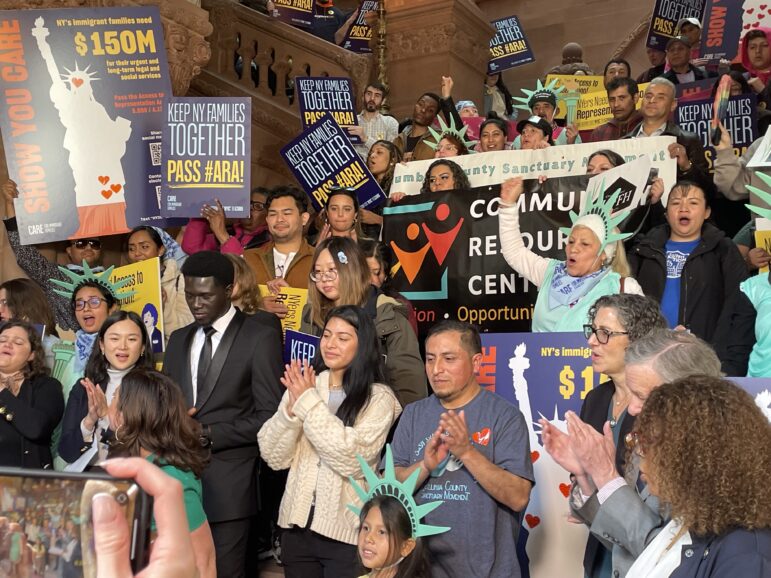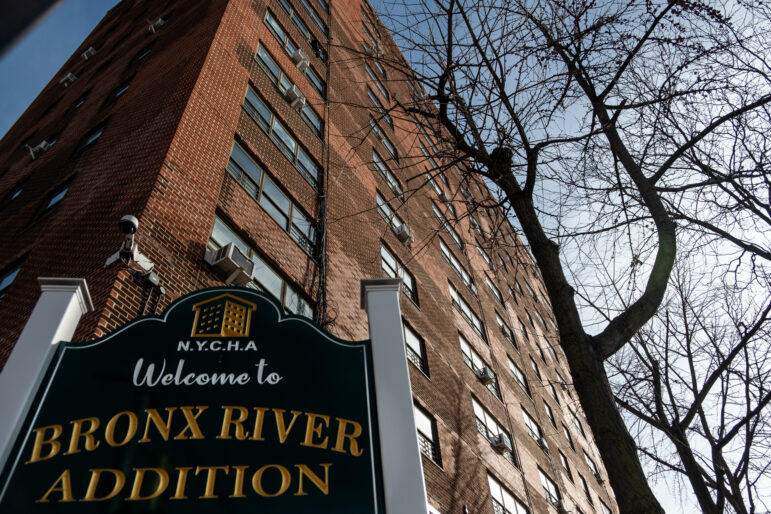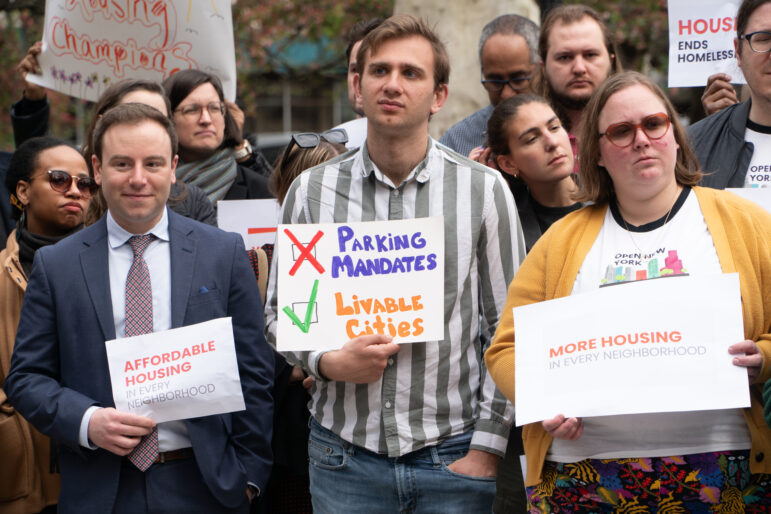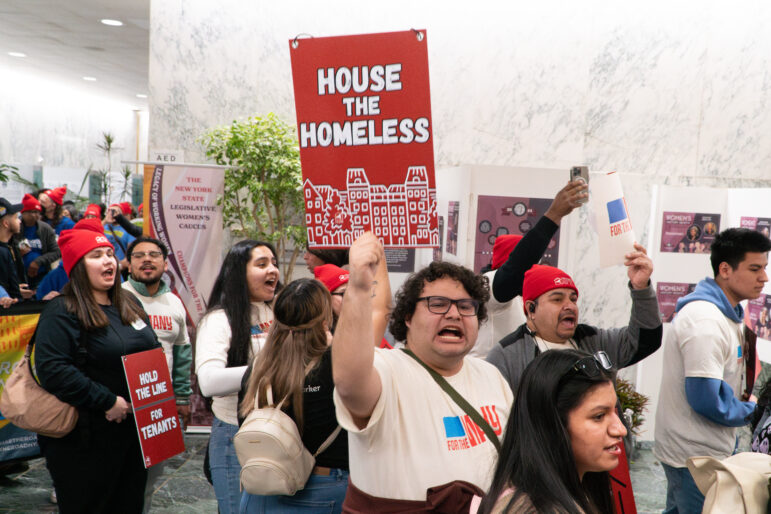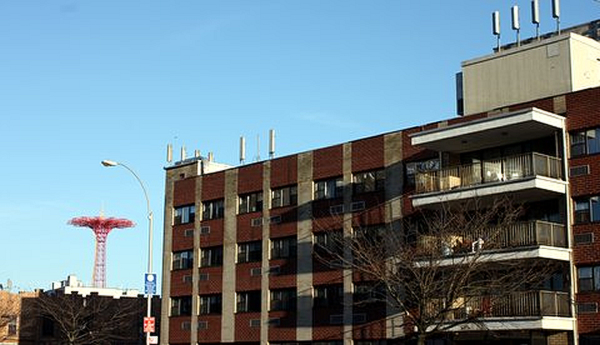
Photo by: Joscelyn Jurich
Surf Manor near Coney Island in Brooklyn, one of the adult homes affected by a March court ruling.
Mentally ill adults could have more independent-living opportunities thanks to a federal judge ordering New York State to create housing options besides large, impersonal, institution-like homes. But adult homes serving the city’s mentally ill may continue unchanged for a while longer because the state is raising strenuous objections to the court ruling.
Early last month U.S. District Judge Nicolas G. Garaufis’ ordered the state to develop at least 1,500 supported housing units each year. Over the next three years, supported housing would be provided for all mentally ill individuals currently in adult homes in New York City.
Adult homes, the privately owned residential facilities licensed by the State of New York to serve the mentally ill, have a mandate to provide residents’ room, board, housekeeping, personal care and supervision. Their bills are largely paid for by Medicaid, SSI and other government programs.
Adult homes emerged after the shut-down in the 1970s of state-run institutions for the mentally ill. Community-based treatment in adult homes was initially seen widely as an acceptable alternative for maintaining medicated mentally ill patients after the state closed large institutions.
But adult homes began to display some of the same problems the larger facilities had exhibited. New York Times investigative journalist Clifford J. Levy published a Pulitzer Prize-winning series in 2002, exposing inhumane, illegal and dangerous conditions for mentally ill adult home residents. A more recent Mother Jones photo essay also criticized conditions in other adult homes.
One of the city’s adult homes for the mentally ill, Surf Manor, sits a long block away from Brooklyn’s Coney Island Boardwalk on a lonely section of Surf Avenue. Resident Norman Bloomfield, 62, reads subtle meaning in the street sign at the end of the block: “Dead End.”
“It’s very apropos,” said Bloomfield. He’s been president of the Surf Manor residents’ council for the past four years and has lived in the home since 2001. “[Adult homes] are not appropriate housing for most people. Many have lived independently before and can live independently again. Lives are being wasted.”
In contrast to the adult home model, individuals in supported housing have their own apartments and receive medical and mental health services as needed from non-profit organizations contracted by the state to provide them. Apartments, selected by the contracted agency, are generally scattered throughout a community.
The recent order expands Garaufis’ original 2009 ruling which stated that not providing the option for mentally ill individuals to live as integrated with their communities as possible violated the Olmstead Act and the Americans with Disabilities Act.
Some hailed Garaufis’ March 1 decision—which stipulated that residents with severe dementia, those who are a danger to themselves or others and those in need of skilled nursing care would not be eligible to leave the adult homes—as a landmark ruling.
“We think this is a really important ruling that will change the lives of 4,300 people for the better,” said Cliff Zucker, Executive Director of Disability Advocates Inc., the plaintiff in the case. “We’re thrilled with the order.”
Some opinions were less supportive of Garaufis: Editorials in the Daily News (which supported his 2009 ruling) and New York Post have criticized the order. Both have made unsubstantiated claims that homelessness will proliferate among the city’s mentally ill.
Just two days after Garaufis’ court order, the State of New York appealed the case.
Adult home operators welcomed the appeal. Jeffrey J. Edelman, President of the New York Coalition for Quality Assisted Living (NYCQAL), represents 14 of the 28 for-profit adult homes in New York City affected by the order. “We think the judge got it very wrong,” he said.
Edelman acknowledges that there have been successful cases of people moving from adult homes to supported housing. But he argues that a wide range of people inhabit the adult homes, many of them may not be capable of living in a less-structured and more independent environment.
“People who own and run adult homes are people who have histories of caring for the disabled,” Edelman said in defense of the operators of these privately owned for-profit residences. “They’re doing what they’re doing because they want to help people with social needs.” Currently, approximately 4,300 mentally ill individuals live in adult homes in New York City.
Geoff Lieberman, Executive Director of the Coalition of Institutionalized Aged and Disabled, said the appeal was disheartening. “We are incredibly disappointed that the state is delaying the ability of adult home residents to have the right to move to integrated housing,” he said.
Lieberman stressed that the ruling’s emphasis on supported housing for present and future adult home residents doesn’t force individuals to move. “Folks will not simply be thrown out of adult homes. The homes will not be shut down and people will not be thrown to the streets,” he said.
Supported housing, Zucker explained, does not involve building new apartments. The non-profit agencies will make an effort to place individuals in apartments rented in the communities they prefer. A variety of non-profit agencies will provide individualized support services tailored to each client’s need, Zucker said. The contracted non-profit organizations ensure that supported housing tenants are receiving necessary social, medical and psychological support services, he said.
Zucker anticipates that the state will seek to stay the order pending its appeal, potentially delaying implementation for up to a year.
Morgan Hook, press secretary to Gov. David Paterson, would not discuss the order or the appeal. “We look forward to an ultimate resolution in this matter,” Hook said.
Bloomfield remains positive about the future. “It’s a tremendous victory and landmark decision that will change the rules of the game for adult home residents,” Bloomfield said. “This is dream come true for many residents… There is also a sense of momentum.”


